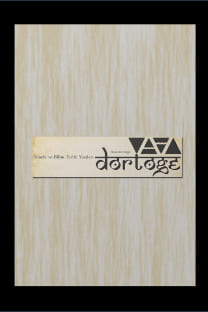Nietzsche ve Benjamin’de Esrik Deneyim ya da ‘Rausch’ Üzerine
Esriklik, Apolloncu, Diyonizyak, Flanör, Pasaj
On the Experience of Intoxication, Rausch, in Thoughts of Nietzsche and Benjamin
ntoxication, Apollinian,
___
- Benjamin, W. (1983) Charles Baudelaire: A Lyric Poet in the Era of High Capitalism. Harry Zohn (çev). London: Verso.
- Benjamin, W. (1986). Moscow Diary. Gary Smith (Ed.), Richard Sieburth (çev). Cambridge, Massachusetts, Londra: Harvard University Press.
- Benjamin, W., & Tiedemann, R. (1984). Gesammelte Schriften, Band V. 1 und V. 2, Das Passagen-Werk.
- Benjamin, W. (1985). One-Way Street and Other Writings. Edmund Jephcott ve Kingsley Shorter (çev). London: Verso.
- Benjamin, W. (1978). Reflections. Peter Demetz (ed.), Edmund Jephcott (çev). New York: Harcourt Brace Jovanovich.
- Cohen, M.(1993). Profane Illumination: Walter Benjamin and the Paris of Surrealist Revolu- tion. Berkeley, Los Angeles, Londra: University of California Press.
- Gilloch, G. (1996). Myth and Metropolis: Walter Benjamin and the City. Cambridge: Black- well.
- Koepnick, L. (1999). Walter Benjamin and the Aesthetics of Power. Lincoln, Londra: Univer- sity of Nebraska Press.
- Marsden, J. (2002). After Nietzsche: Notes towards a Philosophy of Ecstasy. Hampshire and New York: Palgrave Macmillan.
- Nietzsche, F. (1990). Beyond Good and Evil. Reginal J. Hollingdale (çev.). Indianapolis, Lon- don: Penguin.
- Nietzsche, F. (1967). The Birth of Tragedy. Walter Kaufmann (çev.). New York, Toronto: Random House.
- Nietzsche, F. (1968). The Will to Power. Walter Kaufmann ve Reginal J. Hollingdale (çev.). New York: Random House.
- Nietzsche, F. (2005). Twilight of Idols. Çevirmen Judith Norman. Cambridge: Cambridge University Press.
- ISSN: 2146-7064
- Yayın Aralığı: Yılda 2 Sayı
- Başlangıç: 2012
- Yayıncı: Nobel Akademik Yayıncılık
İbrahim Müteferrika Öncesi İstanbul’da Yahudi Matbuatı
İbrahim Müteferrika ÖNCESİ, Selin KARA
Portekiz’de çağdaş Bilim Tarihiyle İlgili Görüşler
Melek Dosay GÖKDOĞAN, Yavuz Selim DOKUMACI
Bilimsellik Ölçütü olarak “Açıklamanın” Doğası
David Lewis’in Karşıt-Olgusal Bağlılık Kavramında Zamansal Asimetri Meselesi
Cinayet mi İntihar mı? Conatus Vakası
Bir Spekülatif Felsefenin Ana Hatları: çember ve Varolma(ma) Alanları
Teknoloji ve Toplumsal Değişim İlişkisinin Sosyal İnşa Kuramı Bağlamında İncelenmesi
Fizyonominin Edebiyata Yansımaları
